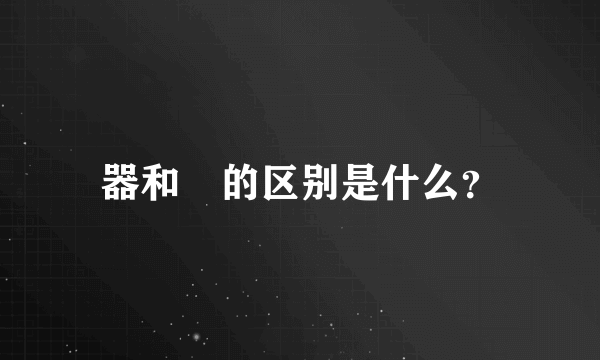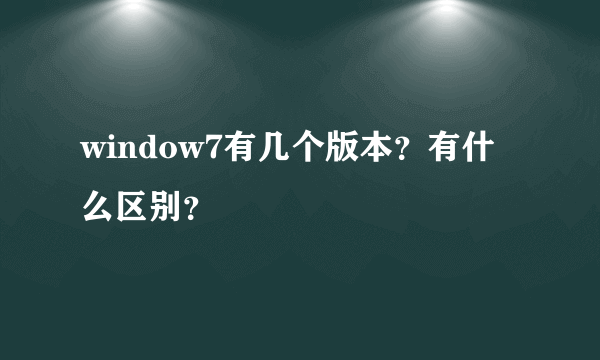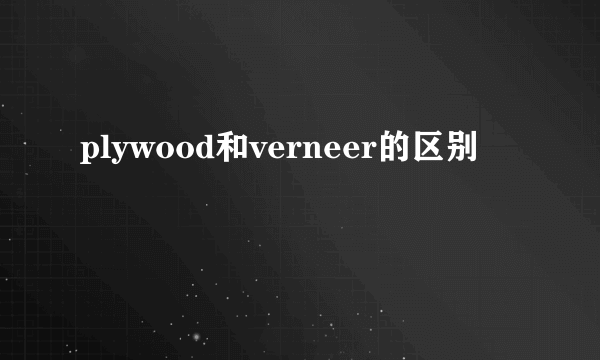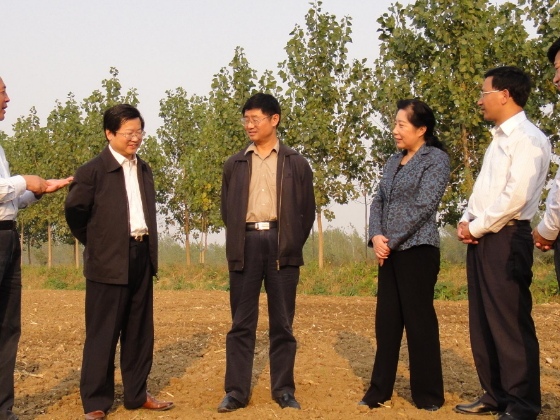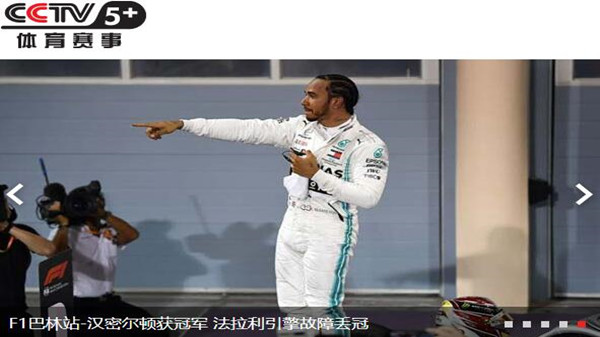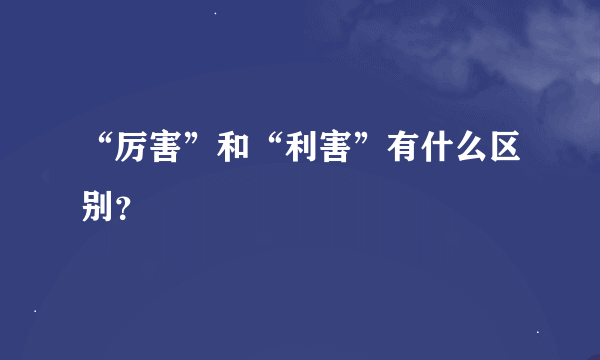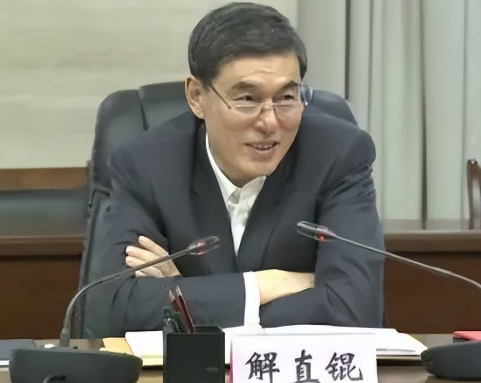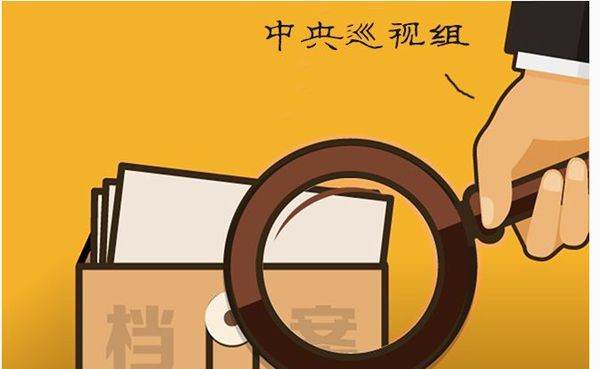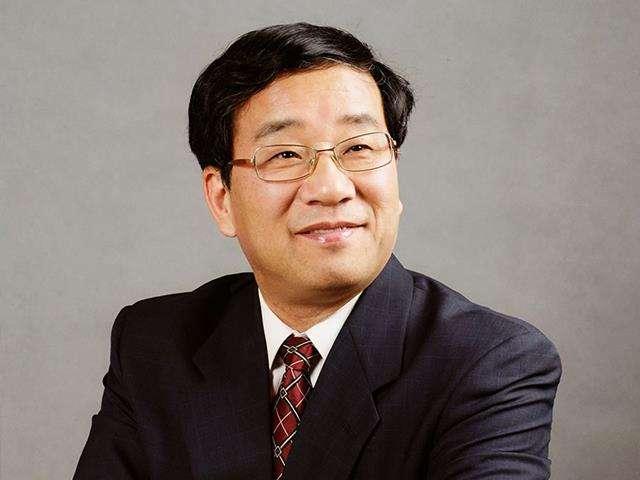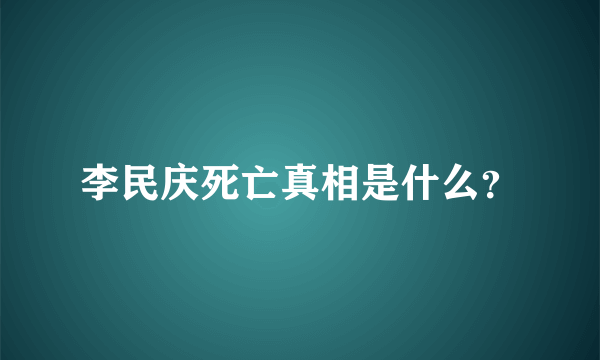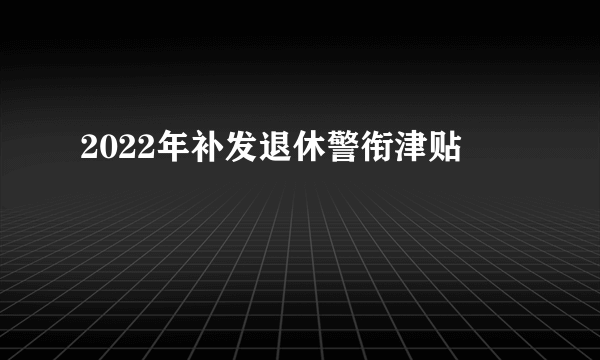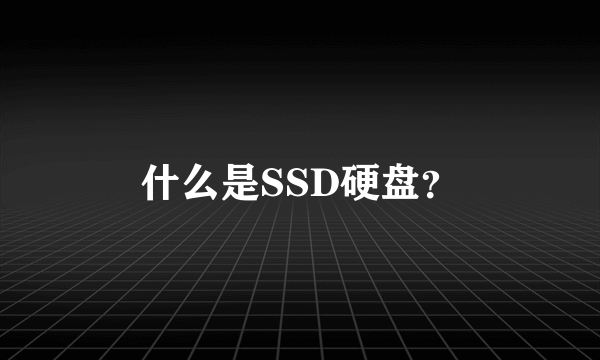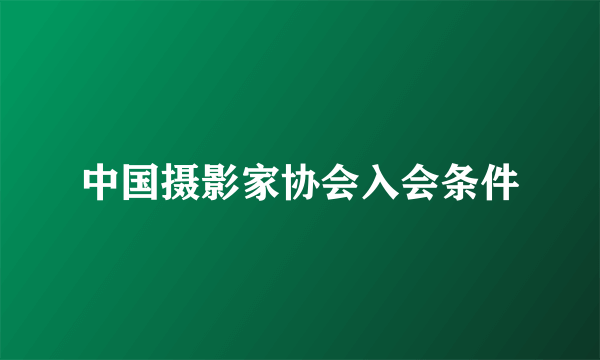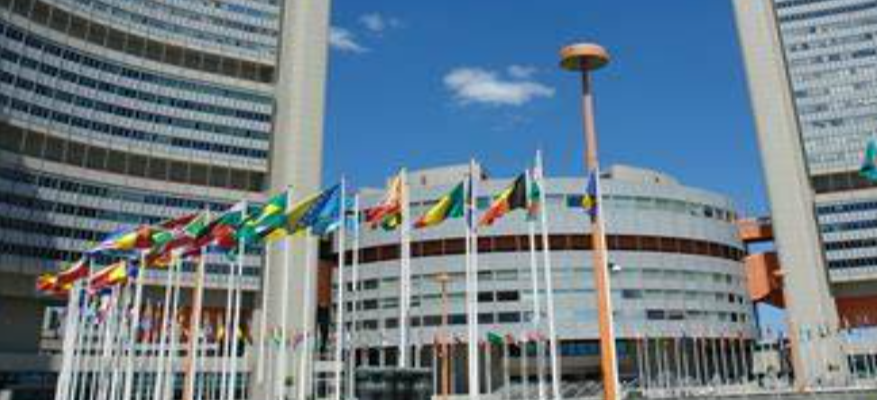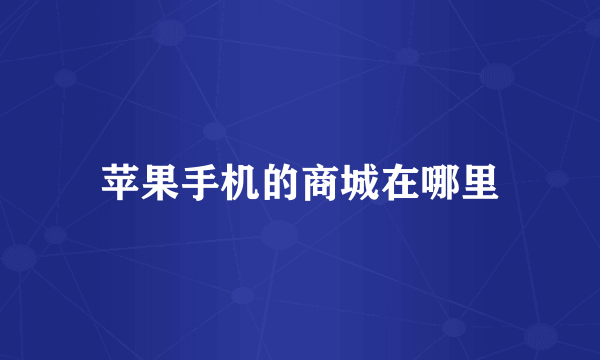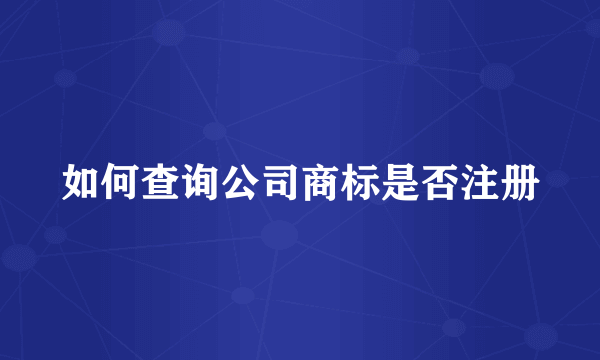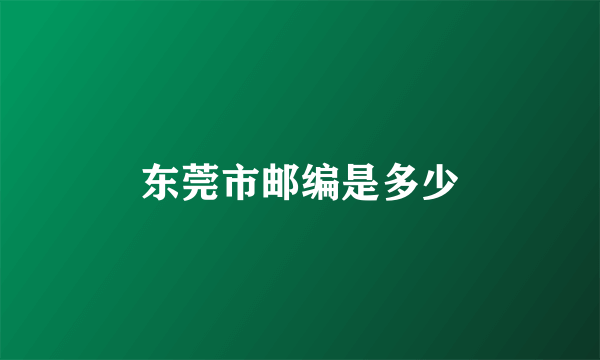需求,需要,要求的区别是什么?
的有关信息介绍如下: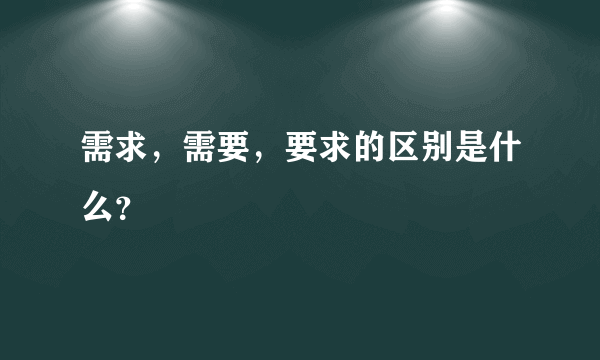
需求和需要是有一定区别的,需求是站在需和求两个角度看问题的,即需要和追求满足,强调需的实现,因而应该联系社会生产和社会制度理解需求;需要只强调需,虽然,也要联系社会生产,但对制度因素,对社会运动关系不大。由于需求问题研究的不深入,人们没有把需求和需要区别开来,因此,这里的“需要”是“需求”的代名词。也恰恰因为传统上人们只倾向于从需的角度认识需求,所以用“需要”来取代“需求”。本书除介绍别人的观点时,用其习惯使用的“需要”一词,除此之外都用“需求”,用“需要”时是与“需求”的涵义不同的。� 1、关于需要问题的提出� 国内学者大多认为,从理论上说,需要问题原本是心理学、经济学、社会学及行为科学等具体学科研究的对象之一,但由于需要概念本身内涵的一般***与普遍***,且随着对人的问题、主体***问题、价值问题等理论问题研究的深化,需要被提升为一个哲学范畴,并成为探讨人的问题的逻辑与历史的起点。� 还有的学者认为,从现实角度看,我国现阶段社会的主要矛盾是人民日益增长的物质文化需要同落后的社会生产力之间的矛盾。以往人们倾向于对矛盾双方的生产力一方的研究,但对矛盾的另一方——人民的物质文化需要——的研究不够重视,这是不全面的。要科学地解决中国的现实问题,就必须研究现实中国人的需要问题。� 2、关于需要概念的界定� 国内学术界对需要范畴的界定较为典型的主要有如下七种意见:� 第一种观点认为,需要就是人对某种目标的渴求和欲望。� 第二种观点认为,需要是有机体的内部环境和外部生活条件的要求在人脑中的反映。� 第三种观点认为,需要是人生存的一种状态,它表现为人对客观事物的依赖关系。� 第四种观点认为,需要是指主体对其生存和发展条件的客观要求及其主观反映。� 第五种观点认出,需要作为一般范畴,是包括人在内的一切生物有机体具有的一种特***,这是有机体为了维持正常运转(生存、发展)必须与外部世界进行物质、能量、信息交换而产生的一种摄取状态。� 第六种观点认为,需要是生物体、人为维持内部及其与环境的平衡状态而产生的一种动态依赖关系和倾向。� 第七种观点认为,需要是人与生俱来、通过活动不断产生,以矛盾状态表现出来并以交换关系为满足方式的人的生存状态。� 以上七种意见中,前三种分别是从心理学、行为学及社会关系的角度概括的,虽然角度各异,但至少从以下两点是共同的:一是它们都将人作为需要的主体;二是肯定了需要是主体对一定对象的要求或依赖。后四种观点则是在前面具体学科归纳的基础上,从哲学的角度进行概括的。它们之间的异同主要表现在:首先,它们的分歧集中在对需要主体与需要***质的规定上。有人认为需要主体是包括人在内的一切生物有机体,而有人则认为应将人以外的其他生物体排除在外。对需要的***质,有“反映说”、“关系说”、“倾向说”及“状态说”等,根本分歧在于对需要***质是主观的还是客观的持不同意见。从物质资料生产的角度看,科学技术确实难于成为独立的生产力要素。其次,它们的共同之处在于,都看到了需要与人的生存发展条件密不可分,从而肯定了需要有客观必然***的一面。此外,它们虽然在需要主体上有分歧,但都承认人的需要与其他生物需要有着本质不同。 补充:Organizations are created to achieve a goal, mission or objective but they will only do so if they satisfy the needs, requirements and expectations of their stakeholders. Their customers, as one of the stakeholders, will be satisfied only if they provide products and services that meet their needs, requirements and expectations. Their other stakeholders (shareholders, employees, suppliers and society) will only be satisfied if the products and services provided to customers are produced and supplied in a manner that satisfies their needs, requirements and expectations.人们创建组织是为了实现目标、完成使命或达到目的,但只有在组织满足了其相关方的需求,要求和期望后才能做到。只有在组织满足了作为组织相关方之一的顾客的需求、要求和期望时,他们才会满意。只有在组织以满足组织的其它相关方(股东、员工、供方和社会)需求、要求和期望的方式向顾客提供产品和服务时,他们才会满意。We all have needs, wants, requirements and expectations. Needs are essential for life, to maintain certain standards, or essential for products and services, to fulfil the purpose for which they have been acquired. According to Maslow1 , man is a wanting being; there is always some need he wants to satisfy. Once this is accomplished, that particular need no longer motivates him and he turns to another, again seeking satisfaction. Everyone has basic physiological needs that are necessary to sustain life (food, water, clothing and shelter). Maslow’s research showed that once the physiological needs are fulfilled, the need for safety emerges. After safety come social needs followed by the need for esteem and finally the need for selfactualization or the need to realize one’s full potential. Satisfaction of physiological needs is usually associated with money – not money itself but what it can buy.我们都有需求、需要、要求和期望。需求是维持一定生活水准所必需的,或者说需求是产品和服务达成组织梦寐以求的目的所必需的。根据马斯洛理论,人是有欲望的,总有满足的需求。一旦实现了,那个特定的需求就不再是他的推动力了,他就会转向了一个需求,同样是寻求满足感。每个人都有基本的维持生命所必需的生理需求(食物、水、服装和安全)。马斯洛的研究表明生理需求得到满足后,安全需求就产生了。安全需求之后是社会需求【爱和归属——jelly】,而后是自尊需求,最后是自我实现或实现自我最大潜能的需求。生理需求通常关联到钱——不是钱本身,而是钱可以买到的那个东西。These needs are fulfilled by the individual purchasing, renting or leasing products or services. Corporate needs are not too dissimilar. The physiological needs of organizations are those necessary to sustain survival. Often profit comes first because no organization can sustain a loss for too long but functionality is paramount – the product or service must do the job for which it is intended regardless of it being obtained cheaply. Corporate safety comes next in terms of the safety of employees and the safety and security of assets followed by social needs in the form of a concern for the environment and the community as well as forming links with other organizations and developing contacts. Esteem is represented in the corporate context by organizations purchasing luxury cars, winning awards, superior offices and infrastructures and possessing those things that give it power in the market place and government. Selfactualization is represented by an organization’s preoccupation with growth, becoming bigger rather than better, seeking challenges and taking risks. However, it is not the specific product or service that is needed but the benefits that possession brings that is important. This concept of benefits is the most important and key to the achievement of quality. Unfortunately, ISO 9001 certification falls into the category of physiological needs simply because,for organizations in some supply chains, it has become a necessity for survival.这些需求通过个人对产品或服务的购买和租赁来满足。组织需求却大不相同。组织的生理需求是维持组织生存所必需的。通常利润排在首位,因为没有组织可以长期支撑亏损,但功能是至高无上的——产品或服务必须实现预期的功能,无论是多便宜得到的。其次是组织安全(需求),即员工的安全和财产的安全,其后是社会需求,即对环境、社区以及与其他组织构建的关系网。组织的自尊需求表现在购买豪华轿车、获得荣誉、高档写字间和基础设施,以及拥有让他们在市场和政府具有影响力的那些东西【比如:人大代表、政协委员、商会会长——jelly】。组织表现自我实现需求的方式是对成长的关注,成为最大而不是最强,寻求挑战,承担风险。但是,需求的不是特定的产品或服务,而是拥有这些产品或服务所带来的利益,这是最重要的。这种利益观念是成就质量最最重要和最最关键的。不幸的是,ISO9001认证被划归到了生理需求,仅仅是因为处在某一供应链中的组织,认证是组织生存所必需的。Requirements are what we request of others and may encompass our needs but often we don’t fully realize what we need until after we have made our request. For example, now that we own a mobile telephone we discover we really need handsfree operation when using the phone while driving a vehicle. Our requirements at the moment of sale may or may not therefore express all our needs. By focusing on benefits resulting from products and services, needs can be converted into wants such that a need for food may be converted into a want for a particular brand of chocolate. Sometimes the want is not essential but the higher up the hierarchy of needs we go, the more a want becomes essential to maintain our social standing, esteem or to realize our personal goals. Our requirements may therefore include such wants – what we would like to have but are not essential for survival.要求是我们让他人做什么,并且要求涵盖了我们的需求,但我们经常不能完全意识到我们需求什么,直到我们做出了要求。例如,我们拥有了手机后才发现,开车时实际上需要手机的免提功能。因此,在买卖过程中,我们的要求并不能完全表达我们所有的需求。在关注于产品和服务所带来的利益时,需求可以转化为需要,比如对食物的需求可以转化为对特定品牌巧克力的需要。有时候,需要不是必需的,而是需求的层次越高,需要就越是必需的,以维持我们的社会地位,自尊或实现个人目标。因此我们的要求可以包括这样的需要——我们希望得到的,而非生存的基本需要。In growing their business organizations create a demand for their products and services but far from the demand arising from a want that is essential to maintain our social standing, it is based on an image created for us by media advertising. We don’t need spring vegetables in the winter but because industry has created the organization to supply them, a demand is created that becomes an expectation. Spring vegetables have been available in the winter now for so long that we expect them to be available in the shops and will go elsewhere if they are not. But they are not essential to survival, to safety, to esteem or to realize our potential and their consumption may in fact harm our health because we are no longer absorbing the right chemicals to help us survive the cold winters. We might want it, even need it but it does us harm and there are plenty of organizations ready to supply us products that will harm us 组织在扩大其业务时创造了对其产品和服务的需求,并非产生于“想要”的需求【在英语中,需求分为三个层次,want,need,demand。want是想要,是一种很泛的想法;need则是需要什么东西,但是会有不同的满足方式;demand就是非常具象的需求了。——jelly】(“想要”是维持我们社会地位所必需的),而是通过媒体广告为我们创造出来的想象(而产生的需求)。我们在冬天不需求春天的蔬菜,但由于行业创造出来的组织提供了蔬菜,于是产生的需求就转化成为期望。现在冬天有春天的蔬菜已有好长时间了,以至于我们期望在商店能买到蔬菜,如果没有的话,我们就到别家商店去买。但是这不是生存、安全、自尊或实现潜能所必需的,而事实上消费这些蔬菜对我们身体是有害的,因为我们无法吸收帮助我们在冬天生存真正所必需的化合物。我们可能需要蔬菜,甚至需求蔬菜,但却是在伤害我们,有太多的组织正准备提供伤害我们的产品。Expectations are implied needs or requirements. They have not been requested because we take them for granted – we regard them to be understood within our particular society as the accepted norm. They may be things to which we are accustomed, based on fashion, style, trends or previous experience. One therefore expects sales staff to be polite and courteous, electronic products to be safe and reliable, policemen to be honest, coffee to be hot, etc. One would like politicians to be honest but in some countries we have come to expect them to be corruptible, dishonest or, at least, economical with the truth! As expectations are also born out of experience, some people might expect businessmen to be corruptible and selfish and it comes as no surprise to read about long drawn out court cases involving fraud and deceit. Likewise, after frequent poor service from a train operator, our expectations are that the next time we use that train operator, we will once again be disappointed.期望意味着需求或要求。不明确提出期望是因为我们认为那是理所应当的——在我们特定的社会里把期望理解为已接受了标准规范。期望是我们耳熟能详的东西,是基于时尚、风格、潮流或以往经验得到的东西。因此,人们期望销售人员是彬彬有礼的,电子产品是安全可靠的,警察是诚实的,咖啡是热的等等。在某些国家,人们期望政治家是诚实的,而我们则期望政治家是腐败份子,不诚实,或者至少在真实性方面是节俭的【没有真话的意思——jelly】。期望也产生于经验,某人期望商人是腐化堕落的,自私自利的,那么在阅读涉及欺诈方面的旷日持久的诉讼案件时,就习以为常了。同样,在经常得到一个火车运营商劣质服务后,我们的期望就是下次我们再用这家运营商时,我们还会失望的。摘自《ISO9000 Quanlity System handbook》

